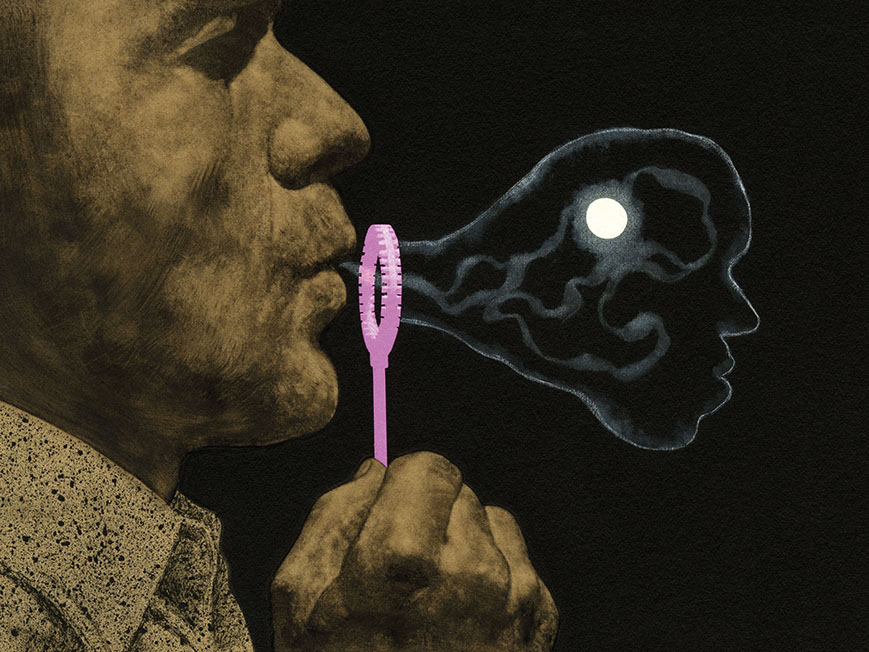Science
Tech’s Quest for Immortality: Exploring New Philosophies of Life

Recent discussions in technology and philosophy have prompted a reevaluation of the concept of immortality. In her new book, The Immortalists: The Death of Death and the Race for Eternal Life, author Aleks Krotoski explores how modern technology intersects with ancient beliefs about identity and existence. Krotoski examines the perspectives of various cultures, including the Sakha people of north-eastern Siberia, who use carved wooden objects known as tüktüïe to honor deceased loved ones. These objects are seen as preserving the identity of the departed, yet they do not embody consciousness in the way contemporary tech advocates envision.
While many cultures, like the Sakha, believe in transferring identity to objects, they do not suggest that these objects possess the consciousness of the deceased. This contrasts sharply with the aspirations of some modern thinkers and Silicon Valley innovators who desire a more tangible form of immortality. They align with philosopher John Locke, who emphasized that consciousness is integral to selfhood. As Krotoski highlights, the quest for immortality in tech circles is not about being remembered but about the ability to remember oneself.
Silicon Valley’s Approach to Immortality
The Silicon Valley mindset embraces the notion of substrate neutrality, which posits that consciousness can be transferred from biological neurons to silicon-based systems. This belief is rooted in the idea that a person is merely a type of code capable of self-awareness. Such perspectives drive the technological race to manipulate and extend human consciousness, reflecting a broader philosophy of liberal individualism. Advocates of this view see technology as a means to enhance one’s life experience, often pursuing what they term “life-maxxing.”
Krotoski’s examination reveals that the cultural practices surrounding this philosophy can be as unusual as traditional rituals. She argues that the phenomena surrounding Silicon Valley’s immortality pursuits echo the ancient quest for the elixir of youth. The author critiques the modern interpretation of self-knowledge, which has shifted from a philosophical reflection on mortality to a data-driven obsession with metrics such as blood-sugar levels or sleep patterns.
The Metaphysics of Wellness and Longevity
In contemporary discourse, the emphasis on wellness has become elevated to a principle akin to a new religion. Practices once viewed merely as health maintenance—such as intermittent fasting or using wellness apps—are now ritualistic elements in the pursuit of eternal life. Krotoski effectively juxtaposes this modern quest with the age-old wisdom found in the epic of Gilgamesh, which teaches that mortality lends meaning to life.
The narrative Krotoski weaves through her book reflects a critical perspective on the motivations behind the modern immortalist movement. She highlights the figure of Bryan Johnson, a tech entrepreneur and vocal proponent of immortality, who engages in extreme self-tracking efforts. Krotoski’s portrayal captures the almost religious fervor surrounding these pursuits, where self-optimization becomes a means to combat death.
Ultimately, Krotoski posits that the movement towards immortality is not merely about esoteric biohacking; it is underpinned by a political theology. The most influential figures are not just supplement sellers, but techno-fundamentalists who seek to reshape governance in alignment with their ideals. The implications of this shift are profound: as technology advances, the potential for a disparity in access to these immortality-seeking technologies grows, raising questions about equity and ethical responsibility.
Krotoski’s work serves as both a critique and a philosophical inquiry into what it means to be human in an age increasingly driven by technological aspirations. The book, published by Bodley Head and spanning 320 pages, is priced at £22. It invites readers to reflect on the age-old questions of existence, identity, and the intersection of tradition with modernity, challenging the notion that technological progress is synonymous with the elevation of human experience.
-

 World5 days ago
World5 days agoCoronation Street’s Shocking Murder Twist Reveals Family Secrets
-

 Entertainment4 months ago
Entertainment4 months agoKate Garraway Sells £2 Million Home Amid Financial Struggles
-

 Entertainment3 months ago
Entertainment3 months agoAnn Ming Reflects on ITV’s ‘I Fought the Law’ Drama
-

 Entertainment3 days ago
Entertainment3 days agoAndrew Pierce Confirms Departure from ITV’s Good Morning Britain
-

 Health3 months ago
Health3 months agoKatie Price Faces New Health Concerns After Cancer Symptoms Resurface
-

 Entertainment4 weeks ago
Entertainment4 weeks agoCoronation Street Fans React as Todd Faces Heartbreaking Choice
-

 World4 weeks ago
World4 weeks agoBailey Announces Heartbreaking Split from Rebecca After Reunion
-

 Entertainment1 week ago
Entertainment1 week agoTwo Stars Evicted from I’m A Celebrity Just Days Before Finale
-

 World1 week ago
World1 week agoKevin Sinfield Exceeds Fundraising Goal Ahead of Final Marathons
-

 Entertainment3 months ago
Entertainment3 months agoCoronation Street’s Carl Webster Faces Trouble with New Affairs
-

 Entertainment3 months ago
Entertainment3 months agoWhere is Tinder Swindler Simon Leviev? Latest Updates Revealed
-

 Entertainment4 months ago
Entertainment4 months agoMarkiplier Addresses AI Controversy During Livestream Response















